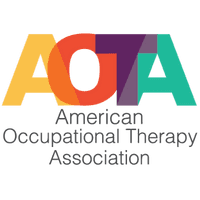Diagnoses Are Important, But They Don’t Define Kids

As professionals, we recognize the importance of an accurate diagnosis. As parents, we understand that diagnoses can have upsides and downsides. In this piece, I outline how to use diagnoses to the benefit of a child and family without relying on them as a means to redefine the child or the family system. An accurate diagnosis helps us communicate about the symptoms that a child is experiencing. It can help us to understand the underlying cause(s) of a child’s difficulties. An accurate diagnosis leads us to research about the most effective interventions. It leads us to resources such as books or websites that provide helpful information. All of these ultimately help us best treat the child and can help families cope more effectively. These are the primary reasons to make a diagnosis.
The Role of a Diagnosis in Guiding Support
Let’s take, for example, a child presenting with mild fine and gross motor development delays and behavioral dysregulation. These can be associated with a myriad of diagnoses, including, for example, Attention/Deficit Hyperactivity Disorder (ADHD).
Why not just treat the symptoms rather than diagnose the disorder?
An accurate diagnosis leads us to the most effective treatments. A proper diagnosis also reminds us to be aware of related difficulties. For example, if a child is diagnosed with ADHD, there is a significantly increased chance of having a learning disability.
A child diagnosed with ADHD should be monitored carefully to ensure they are not slipping through the cracks at school with academic difficulties being “blown off” as simply attentional problems. By getting a good evaluation and proper diagnosis, parents can get information about current interventions and things to pay attention to over time. This information can reduce a child’s (and their parents’) struggles.
Without a proper diagnosis, individuals with ADHD, as in this example, often experience years of frustration when teachers, coaches, or parents simply think they aren’t trying hard enough. A diagnosis explains things. A diagnosis can improve outcomes. Therefore, a diagnosis is important.
Your Child Is More Than a Diagnosis
Then why not stop at a diagnosis is important? Why is it important to remember that a diagnosis does not define a child?
Often parents are presented with a diagnosis for their child and are told all of the things they need to do to work on all of the areas in which their child struggles. As parents, we want our children to have all available opportunities in life. We want them to be on a level playing field with their peers. We love and protect, and once we receive a diagnosis, this means providing intervention or support.
Of course, that is good when it helps a child function more effectively at home, at school, or in the community. However, if we start to see our child as their diagnosis, or the symptoms associated with it, we may lose sight of the unique and incredible individuals they are.
Understanding when a diagnosis is important or not is a fine line to walk. On the one hand, it is important to recognize when a behavior might be due to a diagnosis so that we can provide appropriate support.
On the other hand, it is critical to remember that those behaviors do not define a child (in the present or for the future). Each child has strengths to foster, and seeing them as a whole child, defined not by their diagnosis but by what they bring to the world, helps them grow confidently despite any challenges they may have.
How Kinspire Supports the Whole Child
At Kinspire, we use diagnoses when needed—but we never let them limit the vision of who your child is or who they can become.
Our licensed occupational therapists work closely with families to build personalized support plans that go beyond the label. We see the full picture—skills, relationships, environments, and the goals that matter most to your family.
Whether or not your child has a formal diagnosis, Kinspire can help:
✅ Identify real-life challenges and unmet needs
✅ Design tailored routines and strategies for home and school
✅ Provide daily support—not just weekly sessions
✅ Adjust care as your child grows
Ready to Get Started?
Book a free consultation and get matched with a licensed OT who will support your family every day. No diagnosis required.




